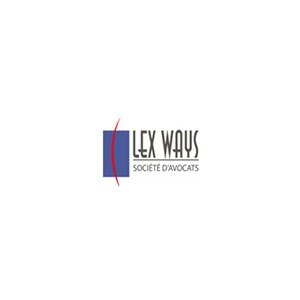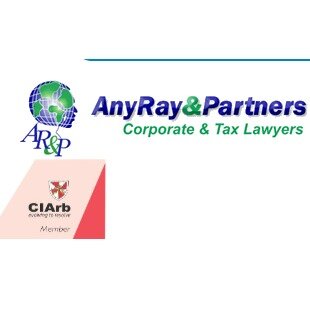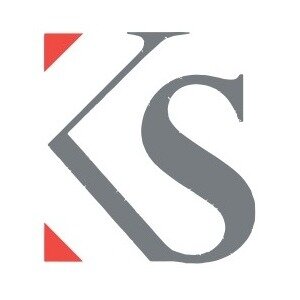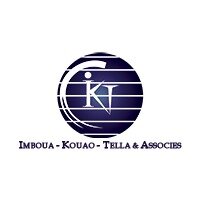Best Communications & Media Law Lawyers in Ivory Coast
Share your needs with us, get contacted by law firms.
Free. Takes 2 min.
Or refine your search by selecting a city:
List of the best lawyers in Ivory Coast
About Communications & Media Law in Ivory Coast:
Communications & Media Law in Ivory Coast governs the regulations and restrictions on various forms of media such as television, radio, print, and digital platforms. These laws are in place to ensure the protection of freedom of expression while also maintaining ethical standards in journalism and communications.
Why You May Need a Lawyer:
You may need a lawyer in the field of Communications & Media Law in Ivory Coast if you are facing issues related to defamation, intellectual property rights, censorship, privacy violations, or any other legal disputes concerning media content. A lawyer can provide you with legal advice, representation in court, and help navigate the complex legal framework surrounding media laws in Ivory Coast.
Local Laws Overview:
In Ivory Coast, the media is regulated by the National Council for Audiovisual Communication (CNCA) which enforces laws related to freedom of the press, media outlets licensing, defamation, slander, and libel. It is important to comply with these regulations to avoid legal consequences while exercising your rights to freedom of expression.
Frequently Asked Questions:
1. What is considered defamation in Ivory Coast?
Defamation in Ivory Coast is when someone makes false statements that harm the reputation of another person or entity. It can be either in written (libel) or spoken (slander) form.
2. Can I be held liable for sharing someone else's defamatory content on social media?
Yes, you can be held liable for sharing defamatory content on social media platforms. It is important to be cautious about the content you share and avoid spreading false information that could harm someone's reputation.
3. How can I protect my intellectual property rights in Ivory Coast?
You can protect your intellectual property rights by registering your creations such as trademarks, patents, and copyrights with the appropriate authorities in Ivory Coast. Consult a lawyer to help you navigate the registration process and enforce your rights.
4. What are the consequences of violating media regulations in Ivory Coast?
Violating media regulations in Ivory Coast can result in fines, imprisonment, or the suspension of broadcasting licenses. It is essential to understand and adhere to the laws to avoid legal repercussions.
5. Can I challenge a decision made by the CNCA regarding my media content?
Yes, you can challenge a decision made by the CNCA through legal proceedings. It is advisable to seek legal representation to help you navigate the appeals process effectively.
6. Are there any restrictions on foreign ownership of media outlets in Ivory Coast?
Yes, there are restrictions on foreign ownership of media outlets in Ivory Coast. Foreign investors can only own up to 20% of a media company, while the majority ownership must be held by Ivorian citizens.
7. How can I file a complaint against a media outlet for invasion of privacy?
If you believe your privacy has been violated by a media outlet, you can file a complaint with the CNCA or seek legal assistance to pursue legal action against the responsible party.
8. What is the process for obtaining a broadcasting license in Ivory Coast?
To obtain a broadcasting license in Ivory Coast, you must submit an application to the CNCA along with the necessary documentation and comply with the regulations set forth by the authority. Consult a lawyer to help you navigate the licensing process effectively.
9. Can journalists in Ivory Coast be prosecuted for revealing state secrets?
Journalists in Ivory Coast can be prosecuted for revealing state secrets if the information poses a threat to national security. It is important to exercise caution and adhere to ethical standards in journalism to avoid legal consequences.
10. What are the legal implications of cyberbullying in Ivory Coast?
Cyberbullying is considered a criminal offense in Ivory Coast and can result in legal action against the perpetrator. If you or someone you know is a victim of cyberbullying, seek legal assistance to address the issue and protect your rights.
Additional Resources:
For more information on Communications & Media Law in Ivory Coast, you can visit the National Council for Audiovisual Communication (CNCA) website or consult with legal experts specializing in media law.
Next Steps:
If you require legal assistance in Communications & Media Law in Ivory Coast, it is advisable to seek guidance from a qualified lawyer who can provide you with personalized advice and representation to resolve your legal issues effectively.
Lawzana helps you find the best lawyers and law firms in Ivory Coast through a curated and pre-screened list of qualified legal professionals. Our platform offers rankings and detailed profiles of attorneys and law firms, allowing you to compare based on practice areas, including Communications & Media Law, experience, and client feedback.
Each profile includes a description of the firm's areas of practice, client reviews, team members and partners, year of establishment, spoken languages, office locations, contact information, social media presence, and any published articles or resources. Most firms on our platform speak English and are experienced in both local and international legal matters.
Get a quote from top-rated law firms in Ivory Coast — quickly, securely, and without unnecessary hassle.
Disclaimer:
The information provided on this page is for general informational purposes only and does not constitute legal advice. While we strive to ensure the accuracy and relevance of the content, legal information may change over time, and interpretations of the law can vary. You should always consult with a qualified legal professional for advice specific to your situation.
We disclaim all liability for actions taken or not taken based on the content of this page. If you believe any information is incorrect or outdated, please contact us, and we will review and update it where appropriate.
Browse communications & media law law firms by city in Ivory Coast
Refine your search by selecting a city.












